
The database is the heart of every company. It contains within itself all the essential data for the operation of a business and is the raw material to run any software or business platform. That is why the monitoring of the databases is so essential, and in this task, Grafana is a great ally since it allows monitoring the logs with the tools it offers.
Let's start by defining what Grafana is
Grafana is an open-source solution, which is responsible for monitoring and analyzing each database. It's like a kind of accumulator, a tool that can get data from different sites and show it in an aggregated way with different filters.

“The goal in creating Grafana was to make the things that I found difficult and other people found difficult, easier and more accessible. That way more people could start instrumenting their apps and creating dashboards themselves. Make observability tools accessible to everyone in an organization, not just the Operations person,” says Torkel Ödegaard, Co-Founder of Grafana Labs.
The Grafana community is growing every day: more than 10 million users are part of the community, with more than 1,700 contributors.
How to use Grafana in log systems
It must be made clear that Grafana is not per se a tool for managing logs or uploading logs or displaying logs. It is not its default functionality. For this task, there is Loki, one of the products of the Grafana suite for managing logs. Loki is designed to store and consult logs of all the applications and infrastructures that a company has.
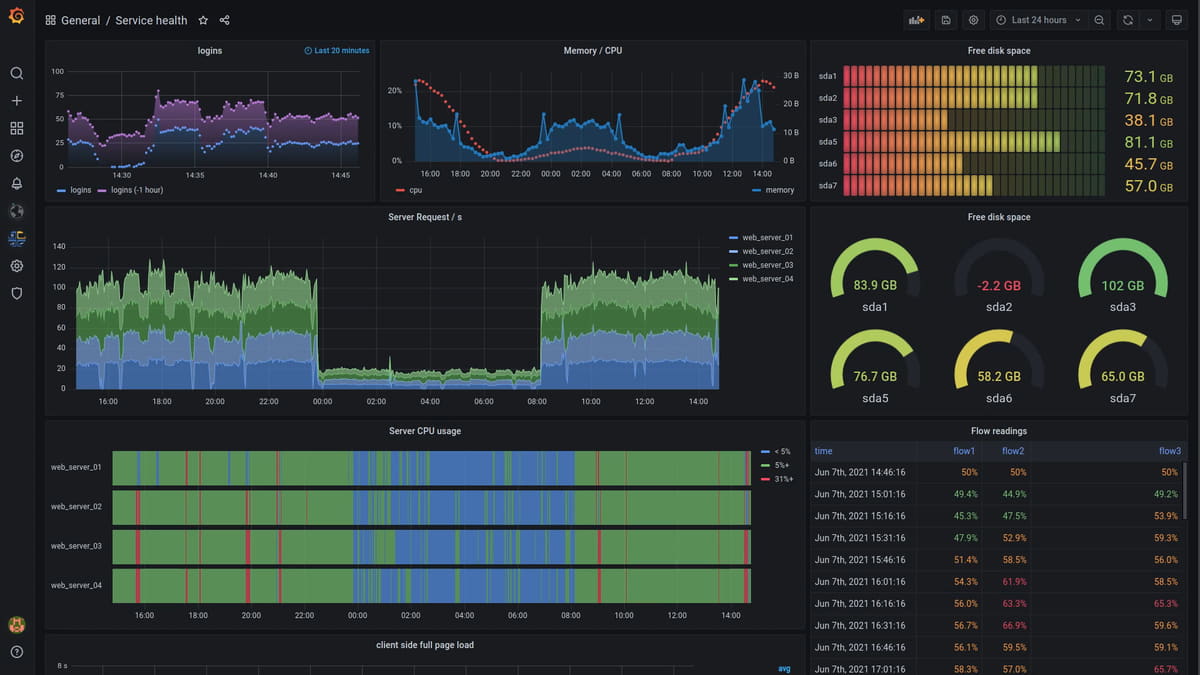
Loki is a replacement for an existing tool, Prometheus. From this, they created Loki. The difference with Prometheus is that he could record any type of record, anywhere, and that's it. While Loki focuses on what we really want to talk about, which is the logs.
Grafana is like that interface, that accumulator, that service that connects with everything. It is who has control over user management, who has access, manages the views, and can create custom views, and custom reports. And Loki is the one who receives the logs and is a kind of database that Grafana uses to display the information.
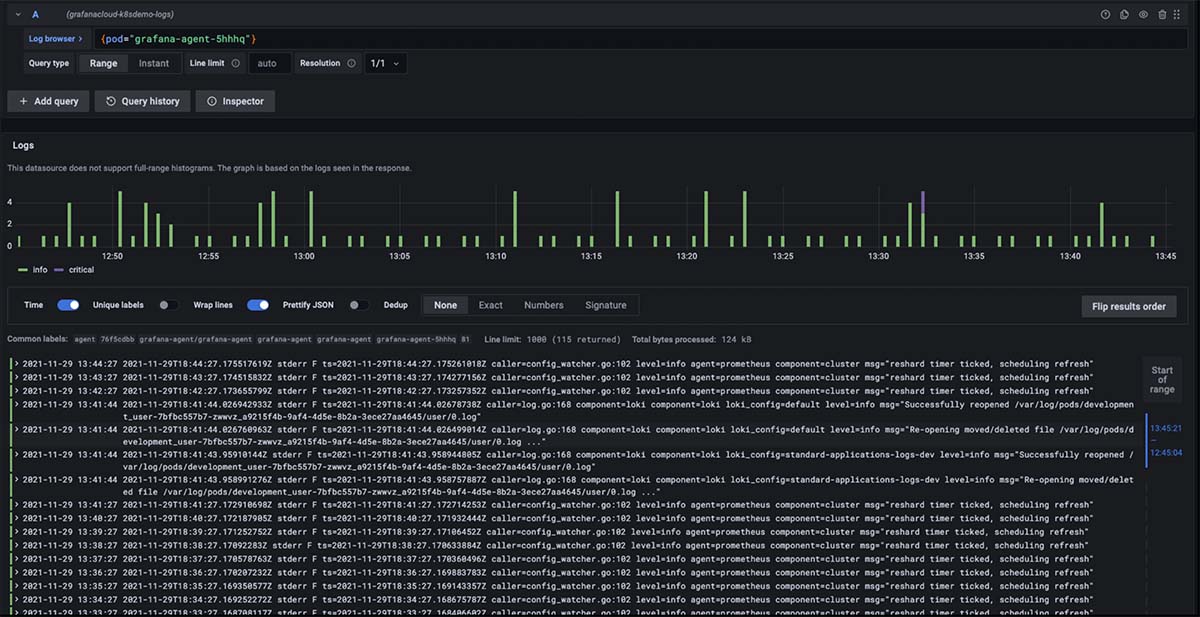
Advantages of Grafana and Loki over traditional log management
If we talk about the traditional management of logs, for example, you can have the logs on a server, they are saved in text files that are difficult to read, they are numerous, and they have a huge number of rows. It becomes difficult for a programmer to go and see the logs on the server, they have to connect, and look for what file they are looking for... a task that can become very tedious and time-consuming.
When you already have Grafana with Loki this is simplified, because Loki is checking one or multiple log files at the same time. You can have Loki consume multiple logs, you can categorize the logs, label the logs and you can create time ranges to do the searches.
Loki consumes the logs in a way that is easy to read in the future, to filter. It is a very useful tool for a programmer, and for a team of developers.
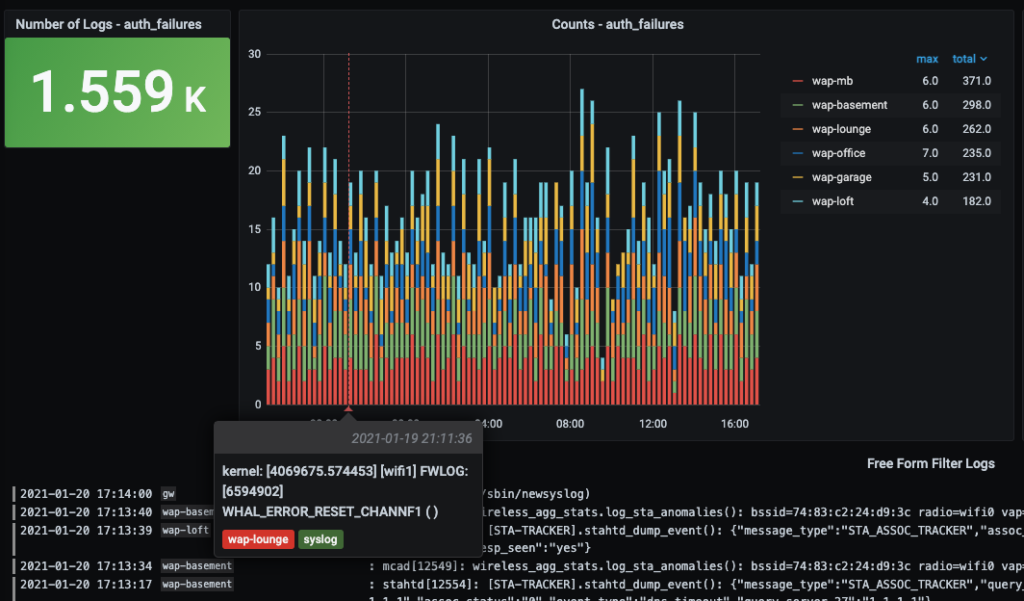
Other benefits and functionalities of Grafana + Loki in log management
Audit
You can save logs of changes in the logs system, it is quite flexible with what is going to be saved. This way you can keep track of everything that is done in the log system.
Access levels
You can have different levels of access. Grafana gives you the ability to give access to some logs, to some users, without having to give up full control over the application or the ability to view all of an application's data. It allows you to have those levels of access that, in development teams with clients, can sometimes be a bit complex.
Good performance
It is a tool that is designed with the focus of saving log records, therefore it has the adequate performance that is expected.
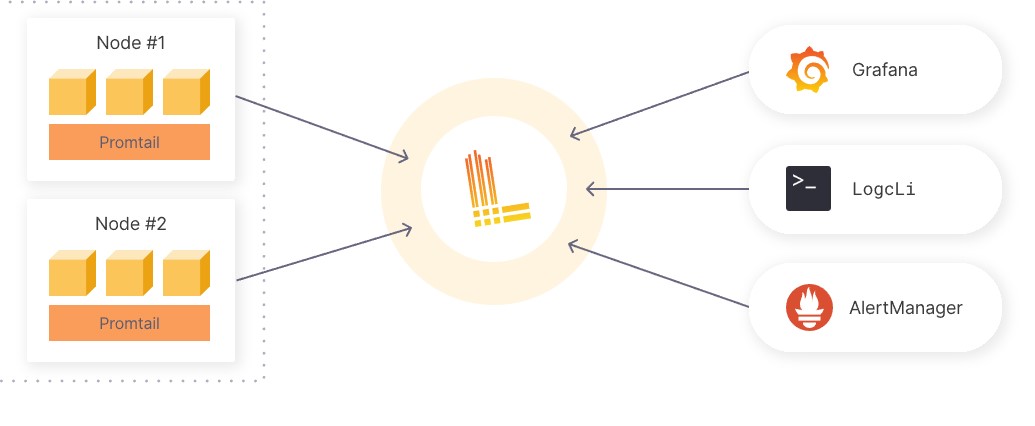
Speed
It's not as complex as a database and therefore not as slow as if you had to interact with a database.
User-friendly
It has a simple search way, it does not have complex tags or complex queries.
Grafana integrations with applications and platforms
Grafana provides an API that is consumable, to interact with the logs through integrations with any application or platform. Since it provides an API, you can connect it with your own services, your own applications and use it the way your company needs it.
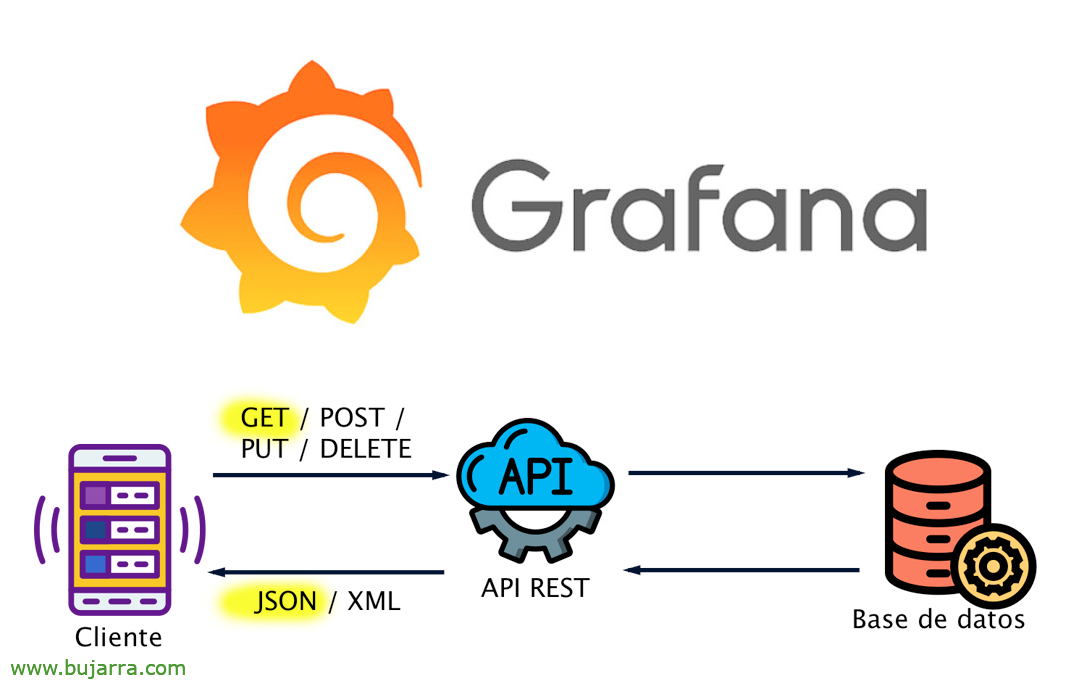
It is an open-source tool, which also offers software-as-a-service. They allow you to have a Grafana hosted by them, at a fixed or dynamic price, depending on consumption, or you can have it on your team, within your company, if you wish. This applies to cases such as banks or clients who handle confidential information.
At Rootstack, we have +10 years of experience supporting companies in their digital transformation. Do you need expert software developers? Contact us!
We recommend you on video

